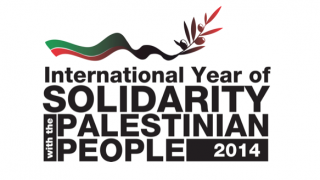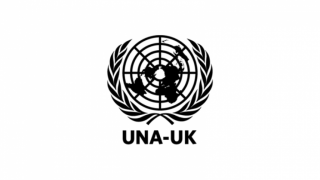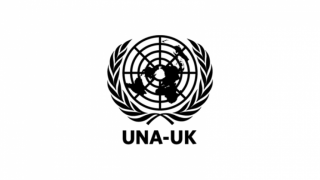
On 13 October 2014 - the International Year of Solidarity with the Palestinian People - British Parliamentarians will debate the motion:
The motion is supported by a cross-party group of MPs. An amendment to the motion, which appends the words "on the conclusion of successful peace negotiations between the Israeli government and the Palestinian Authority", has also been tabled for discussion.
The vote comes days after Sweden announced that it will recognise the state of Palestine, joining over 130 UN member states that have done so since the Palestine National Council's proclamation of statehood on 15 November 1988.
Palestine's quest for recognition has gathered pace in recent years. In 2012, it was granted 'non-member observer state' status by the UN General Assembly, after its previous bid to become a full UN member state failed due to lack of support at the Security Council.
138 UN member states voted in favour of the resolution. Nine voted against, including the United States. The UK abstained. Following the vote, Palestine is now referred to as the 'State of Palestine' in official UN documentation.
At the time of the 2011 bid, then-British Foreign Secretary William Hague said:
The United Kingdom judges that the Palestinian Authority largely fulfils criteria for UN membership, including statehood, as far as the reality of the situation in the occupied Palestinian territories allows, but its ability to function effectively as a state would be impeded by that situation. A negotiated end to the occupation is the best way to allow Palestinian aspirations to be met in reality and on the ground. We will not vote against the application because of the progress the Palestinian leadership have made towards meeting the criteria, but nor can we vote for it while our primary objective remains a return to negotiations through the Quartet process and the success of those negotiations.
UNA-UK support for recognition at the UN
Ahead of the 2012 vote at the General Assembly, UNA-UK wrote to the Foreign & Commonwealth Office, expressing its hope that the UK would support the granting of 'observer state' status.
Acknowledging that peace would not come about through resolutions at the UN - a view expressed by the UK and US governments when explaining their position on the vote, the letter made the case that upgraded status should not be seen as a barried or alternative to negotiations.
Instead, it should be seen as an opportunity for Palestinians to move towards becoming a more equal negotiating partner, including in terms of complying with international humanitarian and human rights law. It was also a chance for the international community to demonstrate that it believes the current situation to be intolerable and commit to a new process to find a just and durable agreement.
UNA-UK reiterated this point in its most recent representations to the UK Government in August 2014. In a letter to the Prime Minister, the Association's Chairman, Sir Jeremy Greenstock, noted the lack of progress in the search for a comprehensive settlement and that "it has been widely accepted that the Oslo Peace Process has nothing more to offer".
The letter went on to say that of the Quartet's members, the UN is the most likely to be perceived as an "honest broker" and that UNA-UK supported calls by senior Israeli, Palestinian and EU figures for the UN to play a leading role in moving forward after this summer's conflict, if it were given the mandate and support needed to make real progress.






